Improve your hygiene
Good hygiene starts with washing your body the right way. And although there are some body parts you can actually wash less often, others need more TLC than they currently receive. Here are the areas doctors want you to clean more and why.
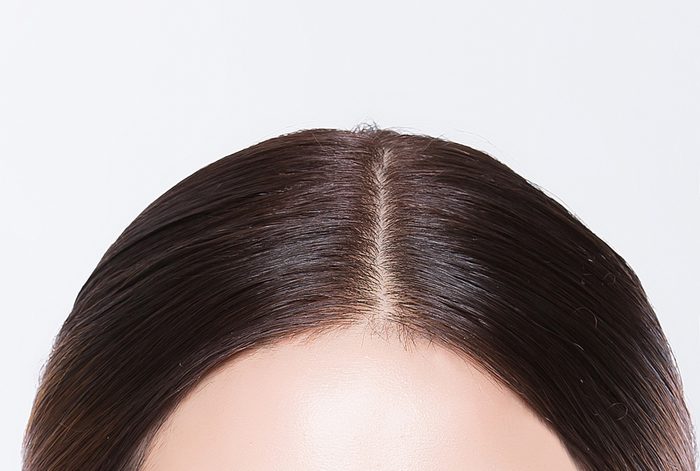
Scalp
Sure, you wash your hair on the reg, but how much attention are you paying to your scalp? “While it’s not necessary to wash your hair daily, it is important to scrub and massage your scalp daily to avoid buildup of dead skin cells, which body mites and bacteria feast on,” says Robert Glatter, MD, assistant professor of emergency medicine at the Northwell Health Department of Emergency Medicine at Lenox Hill Hospital in New York City. “Massaging your scalp daily with warm water not only increases blood flow but helps to manually remove the dead cells which can lead to dandruff, as well as an itchy, red, and flaky scalp,” he says. Weird, but not as bizarre as these strange body parts—and their even stranger purposes.

Back
Although your back gets wet while you’re standing in the shower, it needs more attention than you’re likely giving it. “Invest in a back scrubber or have your partner wash it for you with an exfoliating bath sponge, loofah, or washcloth at least two to three times a week to reduce the risk of developing skin and soft-tissue infections,” Dr. Glatter suggests. (Don’t forget to also consder these body parts you didn’t even know you had.)
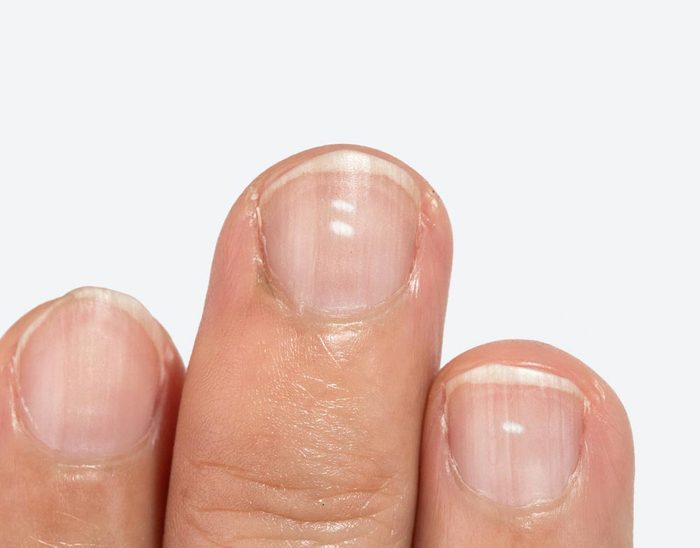
Under the fingernails
You know to wash your hands after you use the restroom, sneeze, touch raw meat, and so on, but if you’re not scrubbing under your nails, you’re only doing half the job. “Fecal bacteria can set up shop and colonize in the area under your nails,” Dr. Glatter says. He suggests soaking a cotton swab with warm, soapy water and swabbing it under your nails to gently remove bacteria and debris. Keeping nails short can also help prevent bacteria from thriving. (Focus on this and ditch these “healthy” hygiene habits that are actually bad for you.)
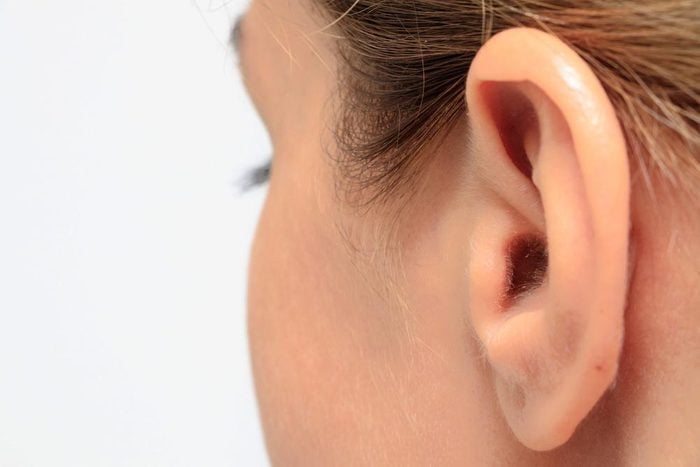
Behind your ears
Mom was right about this one! “The warm and recessed area is full of sebaceous glands which secrete sebum,” says Dr. Glatter. “Sebum provides an ideal hiding place for Staph aureus and Tinea capitis and corporis bacteria, and if not cleaned daily, may start to produce a musty odor.” Wash behind your ears daily. Do you know the name for all parts of your ear? If not, learn the names of body parts you didn’t even realize had names.
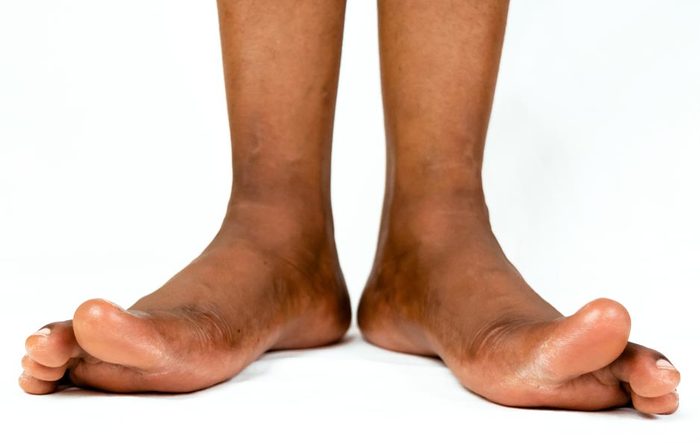
Bottom and sides of the feet
“Many people think that feet get clean in the shower just from the soap and water sliding down their bodies, but that’s not the case,” says dermatologist Sonia Batra, MD, co-host of The Doctors. It’s important to not only wash your feet but to scrub them with a pumice stone daily, Dr. Glatter says. “Staph aureus and Tinea pedis (the fungus that causes athlete’s foot) are common in these areas, especially if you sweat vigorously, and even more so if you don’t wear socks, or simply wear sandals or flip-flops,” he says. Wash and dry between your toes with mild soap daily. Here are some tips on how to use a pumice stone the right way.
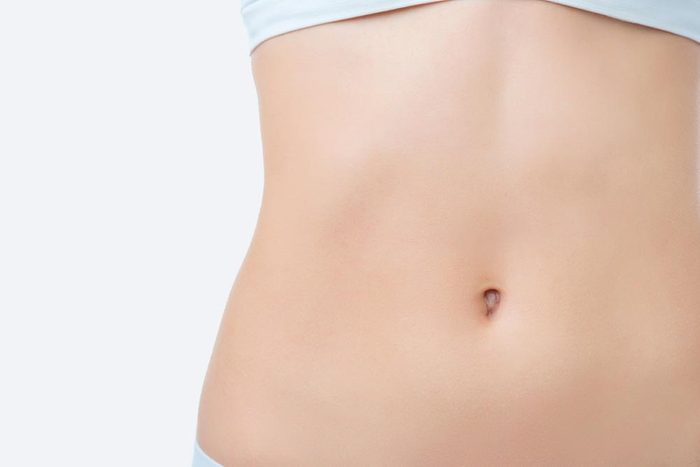
Belly button
“Belly buttons are warm, with nooks and crevices, making them a great place for bacteria to hide,” explains Dr. Glatter. Swab yours daily with a cotton swab soaked in warm, soapy water or alcohol. If your belly button is pierced, it’s even more important to wash it regularly to prevent infections. Add this to your daily routine to replace these bad hygiene habits that are even worse than you thought.
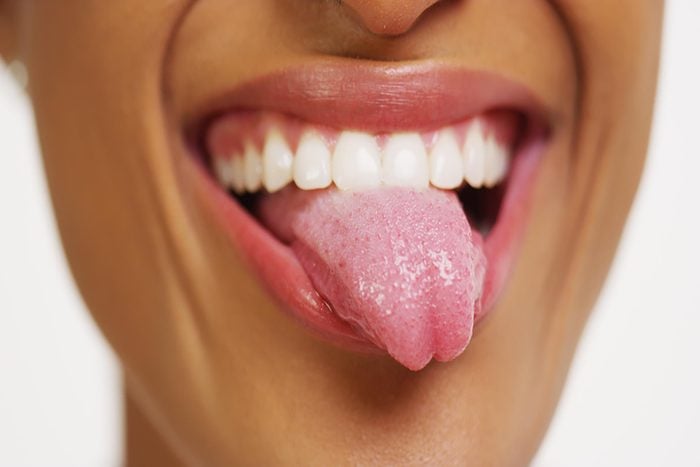
Tongue
“Often people only think of their teeth and gums when talking about dental hygiene and do not provide enough attention to the tongue, or they think that by using mouthwash, they get it clean enough,” says Dr. Batra. However, “the tongue has lots of little ridges and bumps that can hide bacteria, resulting in bad breath and even tooth damage if it is not cleaned regularly,” she says. “Brush your tongue with your toothbrush while you are brushing your teeth or use a tongue scraper.”
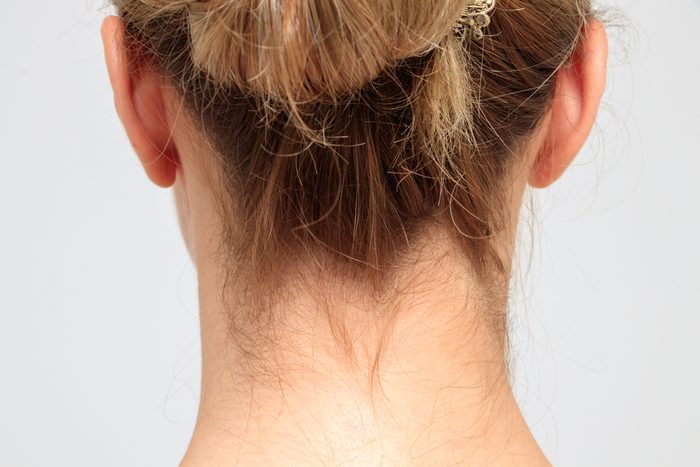
Back of the neck
The back of your neck is warm and can often be moist, especially if you have long hair or if you exercise frequently, which makes it enticing for body mites and bacteria, Dr. Glatter explains. Cleanse it daily with gentle soap and a warm, wet washcloth or exfoliating bath sponge.
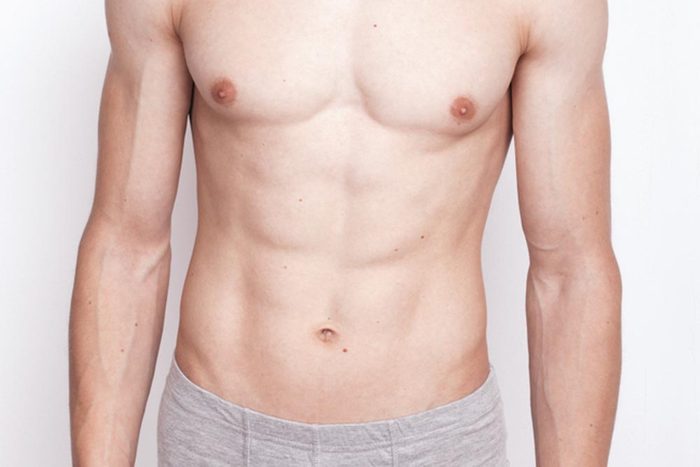
Groin
Take care of those private parts—they tend to get warm and have folds and creases, so they can harbor harmful bacteria that can lead to ingrown hairs, funky odors, and infections. Always use a gentle soap because the skin around your genitals can be quite sensitive, Dr. Glatter advises, and use a washcloth for a more thorough and effective cleansing. Cleansing the area once a day should be enough, but if you exercise, it’s a good idea to shower immediately afterward to prevent sweat from drying, which can lead to irritation, he says.
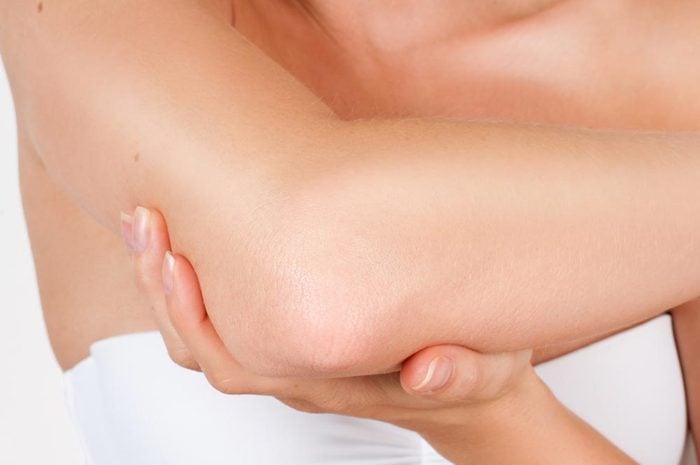
Elbows and creases
“Your elbows and the creases are not only hidden to you in your daily life, but you often place them on dirty surfaces (think countertops, desks, restaurant tables) without realizing it,” says Dr. Glatter. “You can develop dry and scaly skin on your elbows that may be prone to micro skin breaks that can serve as portals of entry for bacteria, leading to skin and soft-tissue infections from Staph aureus and MRSA.” Cleanse them daily with a washcloth or bath pouf—but avoid these parts of your body you should never touch.